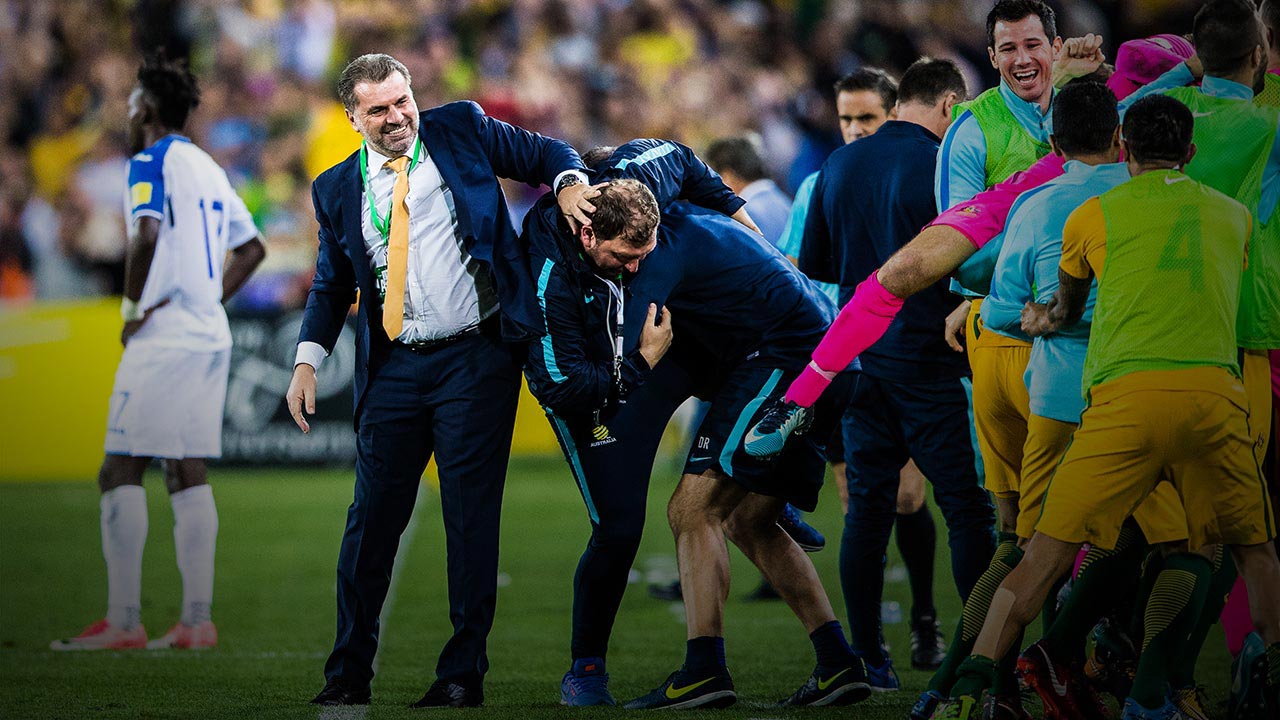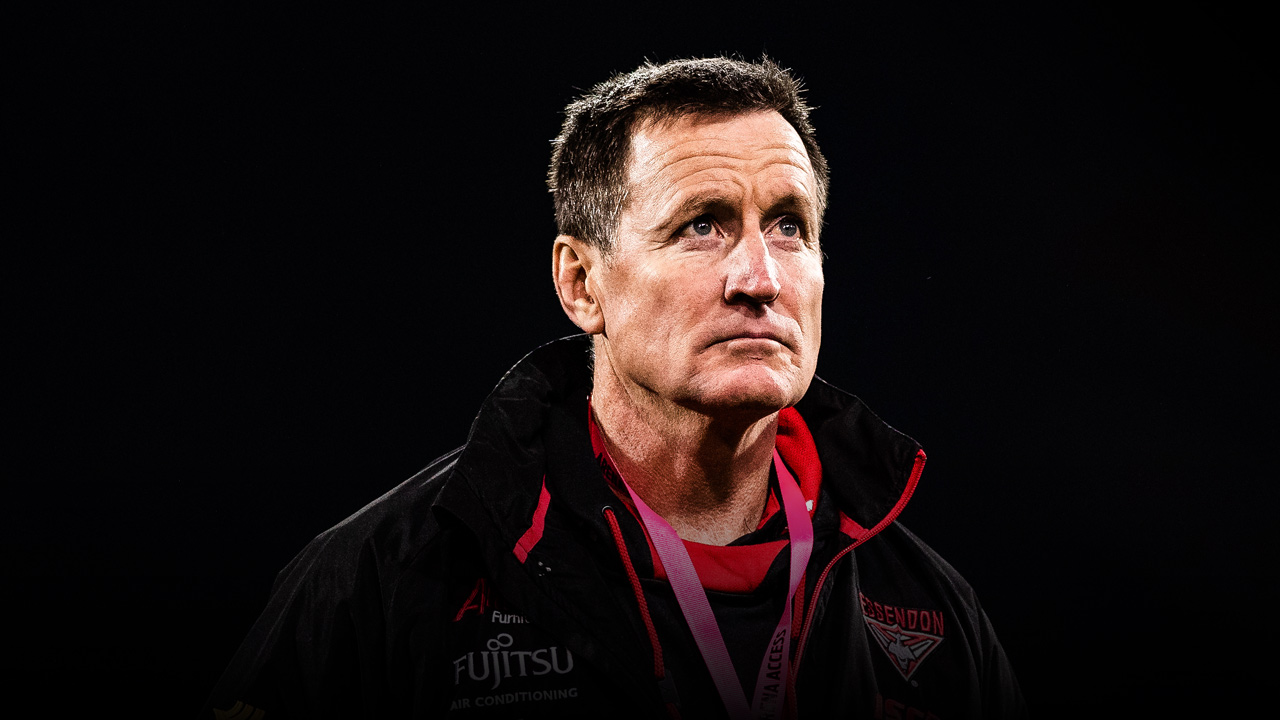the queen’s English
Neither Paloma’s family nor mine were refugees. They had legal status, gained permanent residency and never experienced the uncertainty of displacement. However, like refugees, our parents wanted a safer life with more opportunities for their children.
They made huge sacrifices: they took menial jobs where necessary, struggled with communication while learning a new language in their new country. They felt loneliness and isolation after leaving loved ones and friends behind at a time when cheap budget airlines didn’t exist.
They left parents and family behind expecting never to be able to afford to see them again.
Our interest in the issues faced by displaced people increased in 2007, after a visit to a refugee camp in Thailand. It was part of my role as an Ambassador for the UNHCR, which had stemmed from John Boultbee, FFA’s former head of high performance, who was a board director for the UNHCR in Australia.
Talking to people at the camp demonstrated to us why displacement is such a complex problem. It showed me how much we all need to learn about the issue.

The remote camp, on the border with Burma, was only 900 metres by 300 metres but sheltered 10,000 people. They were Karen tribes people who were being displaced from their traditional land in Burma where a pipeline was to be built.
The buildings at the camp couldn’t be permanent. They had to be torn down yearly and rebuilt as part of an agreement with the Thai government.
I remember meeting one resident, a very dignified elderly gentleman who walked around with an umbrella and spoke the Queen’s English. He’d obviously been educated during British rule in Burma, before 1948.
It was sobering to be told that about a third of the people at that camp would never leave.
They can’t return to Burma where the Karen are being persecuted. And, because some are deemed to have been ‘combatants’ – for having tried to defend themselves and their land – they would not be accepted to Australia, Canada, USA, UK or Norway, countries which at the time were typically accepting refugees.
The insight I received during that visit challenged the portrayals of refugees you often see in the media or through politics.
I was just glad to give the staff there a small morale boost, to let them know I was grateful for the work they were doing and would try to bring attention to them.
One UN employee commented that my visit had given him hope that people ‘outside’ cared about the work they were doing. He commented that, if I from my far-removed world of football took the time and cared, then maybe other people cared too.
When I got back to England, my club at the time, Middlesbrough, donated training gear that I then arranged to be sent over to the camp, which I know was put to good use.

ASKING QUESTIONS
It was humbling and a rare opportunity to visit that camp. But there are many ways we can all become better informed about cultures, religions and people’s situations.
At Leicester, the last club where I played, I generally used two or three taxi drivers, who were Muslim. Each trip, I’d ask about their faith, their views on the world and how they thought people perceived them.
I learnt so much from them. I asked one, ‘If you’re driving a taxi, how do you pray five times a day?’ He explained that the faith allows people to do whatever is necessary to keep up with their prayers. You can pray just with your hands. If you’re disabled, you can pray just with your eyes. It was fascinating to hear.
I asked the drivers for their basic interpretations of the Qur’an. Each said the same thing, that it was about peace, about living with people from various backgrounds, about avoiding conflict. It’s certainly different to what some people would have you believe.
The message I’d like to offer is that the more we speak to people from different faiths and backgrounds, the better our chances of breaking the fear barrier. And, the more we imagine what it’s like to walk in others’ shoes, the better we can empathise with them.
ONTO FOOTBALL MATTERS
I was in Australia recently, partly through my work with Optus Sport, and partly through my role as an Ambassador for the Women’s World Cup. I’m a great supporter of the Matildas and I have faith that they’ll keep going on the trajectory they’ve been, despite the dramas they’ve recently faced.
Only time will tell whether the sacking of Alen Stajcic was the right move. But the way it was done has left many questions unanswered and suggested to me that the direction of the governance at FFA has been highly questionable.
What happened will not be forgotten or forgiven, but I think the girls have done a great job to move on.
I’ve been in situations before where you lose a manager shortly before a big tournament or big games. It’s really tough. It’s particularly tough for the Matildas, given Alen was well liked by his players and did a great job.
What happened will not be forgotten or forgiven, but I think the girls have done a great job to move on. Ante Milicic, as the new coach, has a difficult job because the bar has been set very high. But I’m confident he can continue the momentum Alen created. Hopefully, he’ll take it further.
Ante’s advantage is that the Matildas have a great willingness to learn and adapt. They also are very raw and genuine in the way they relate to fans, which is something, I think, the men’s team needs to re-establish.
It’s going to be a challenge as the Matildas become more popular, more sought after, to keep that connection to their base strong. But I hope they can do it.
To me, it’s an important theme – never forget where you came from.
- Mark Schwarzer is an Optus Sport expert.
- All Premier League, Champions League, Europa League and Women’s World Cup matches are on Optus Sport.
More about: Alen Stajcic | Ante Milicic | Coaching | English football | FIFA Women's World Cup | Matildas | Premier League | Racism | Socceroos | Sponsored




 Load More
Load More